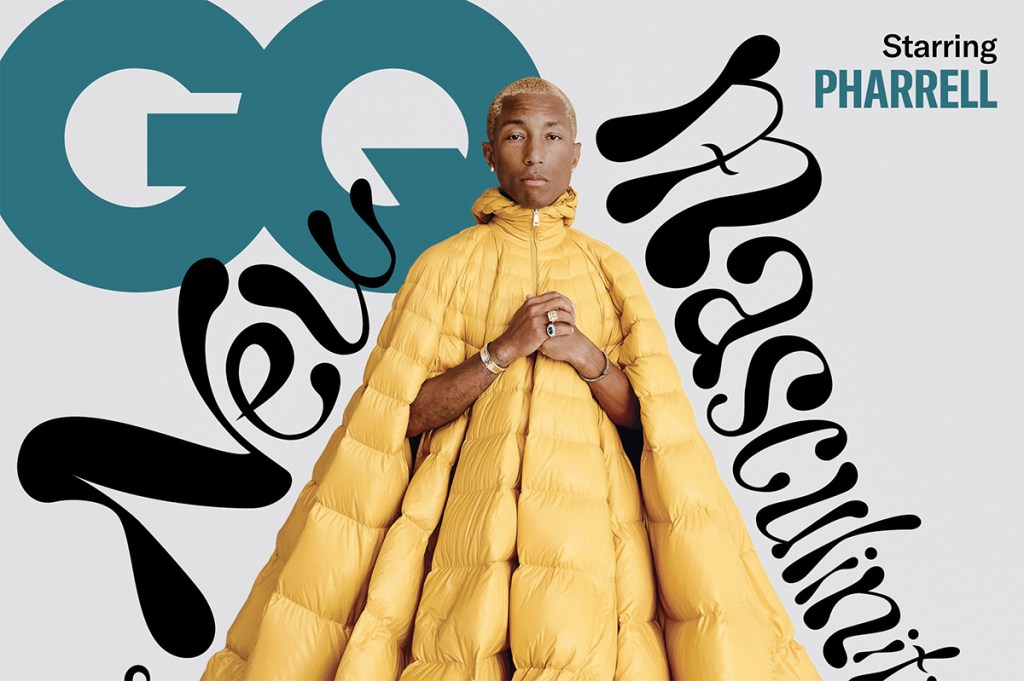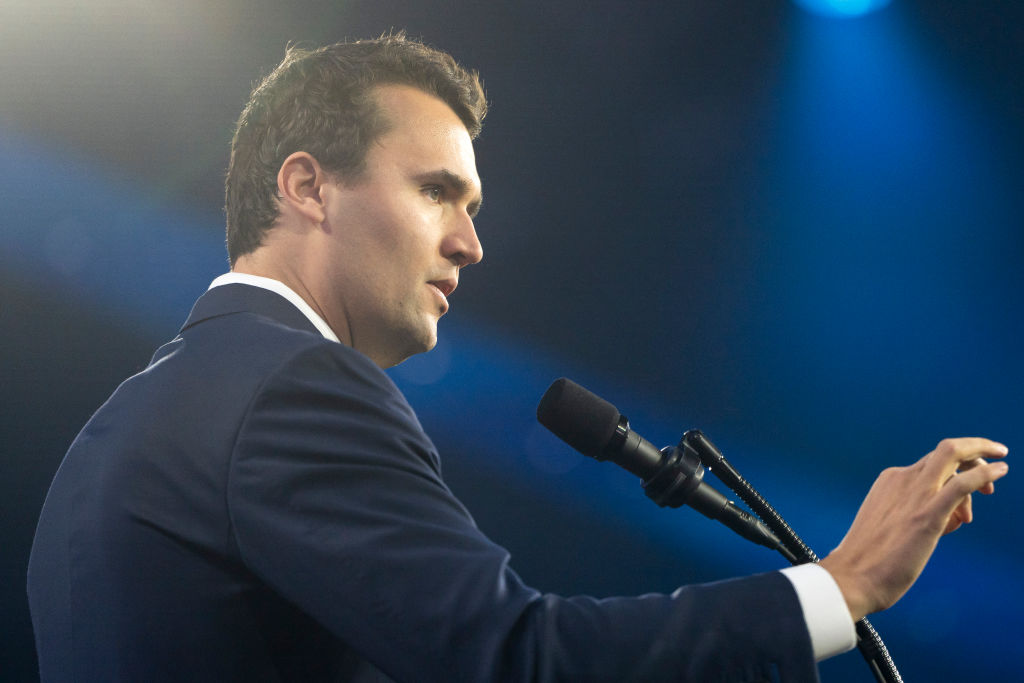In general, there is no point in reading articles you know are bound to make you mad. Life is too short. Read a good book. Enjoy a walk with your loved ones. Learn how to fashion something out of wood. Sometimes, though, an article crosses our path and we are gripped with the despair and anger one might feel watching a drunk driver veer across a crowded street.One such article is GQ editor-in-chief Will Welch’s introduction to the magazine’s ‘New Masculinity’ issue. ‘When I found out that I would be the editor-in-chief of GQ,’ Welch writes:‘…most people said stuff like “Amazing!” and “Congrats!” But one particularly perceptive friend reacted in a way that I’ll never forget. “Yikes,” she said. “Hell of a time to be in charge of a men’s magazine.”‘It was a hard-core thing to say — which is exactly what real friends are for.’Yikes. Men? Big oof! Not a good look, and that’s the tea sis. (Do people really talk like this in real life?) GQ embracing all things ‘woke’ was predictable. Since 1932, this storied institution has published articles and photographs related to men’s fashion and culture. Once a port and cigars kind of publication, in the 1990s it became associated with the ‘metrosexual’ trend. GQ, Mark Simpson wrote, was:‘…filled…with images of narcissistic young men sporting fashionable clothes and accessories. And they persuaded other young men to study them with a mixture of envy and desire.’Being narcissistically obsessed with fashion and status naturally led the owners and staff of GQ to adopt a fashionable, high-status ideology. Like Rolex watches, ‘woke’ opinions are positional goods, too arcane, counter-intuitive and amorphous for anyone except an ideological elite. As with clothes, ‘woke’ fashions offer endless content as different social phenomena are humorlessly deconstructed. It is, in other words, a perfect fit.Or nearly. ‘How do you make a so-called men’s magazine,’ Welch asks himself, ‘in the thick of what has justifiably become the Shut Up and Listen moment?’ This is something like if I, with feigned detachment, referred to ‘what has justifiably become the Ben Sixsmith moment.’ It is only the ‘Shut Up and Listen’ moment inasmuch as journalists like Mr Welch keep telling us it is. To be sure, the #MeToo movement had some value in exposing the pervasive nature of sexual violence but progressives have been using it as a bandwagon for a broad assault on male-gendered phenomena and traditional conceptions of masculinity. Mr Welch does not even mean ‘shut up and listen to women’ but ‘shut up and listen to people who share my politics.’So, how do you make a men’s magazine? You don’t. As Mr Welch explains, GQ is not ‘exclusively for or about men at all.’ Instead:‘…one of the key principles at GQ is that if we tell stories that excite our own smart, voracious, politically and socially engaged team, we will connect with a smart, engaged, diverse, and gender-nonspecific audience.’Voracious? How can you trust an editor who flings adjectives around in search of eloquence like a half-brained banker flings dollar bills around in search of class? What becomes clear in Welch’s shrill prose is that GQ is not for men as much as it is about men, and, more specifically, about making men more emotional, sensitive, socially conscious and stylistically flamboyant.Sometimes the messaging is relatively subtle. ‘Is there a positive side to masculinity?’ Welch asks one interviewee, which, while it might have been well-intentioned, is as loaded a question as its opposite. John Waters, asked to describe a ‘real man’, says , ‘A real man is not scared of strong, smart women.’ True, but like saying a real chef can cook spaghetti. Is that an adequate definition?Sometimes the messaging is more obvious. Pharrell Williams appears to say ‘the dominant force on this planet right now is the older straight white male,’ and ask, ‘Man, what would the world be like if women held all of the highest positions worldwide?’ I too am disgusted by old straight white males putting down protesters in Hong Kong and imprisoning Uighurs, but am also curious what the world would be like if it was ruled by Marion Le Pen and Kolinda Grabar-Kitarowic.On and on the issue goes. Hannah Gadsby arrives to give a typically mirthless lecture. ‘Helloo, the men,’ she begins:‘My advice on modern masculinity would be to look at all those traits you believe are feminine and interrogate why you are so obsessed with being the opposite.’Hello, Hannah. My advice would be to stop beating your wife.‘How about you try pretending that you’re the least powerful person in any room, and that no matter how hard you work you’ll never be the most powerful.’Yes, I’m sure that men working in factories, warehouses and convenience stores really have to stretch their imaginations to conceive of being the least powerful person in a room. You tell ’em, multi-millionaire comedienne. Look, I have a history of eating disorders so I know, thanks, how complex male self-image can be. I know, moreover, that men can adopt repugnant and pathetic attitudes towards women, each other and themselves in the name of masculinity. But the spectacle of a bunch of pouting narcissists in ugly €1,000 jackets talking down to men who struggle to improve themselves and build and sustain their families is disgusting. Frankly, they can roll their issue up and perch atop it.
GQ embracing all things ‘woke’ was predictable. Since 1932, this storied institution has published articles and photographs related to men’s fashion and culture. Once a port and cigars kind of publication, in the 1990s it became associated with the ‘metrosexual’ trend. GQ, Mark Simpson wrote, was:‘…filled…with images of narcissistic young men sporting fashionable clothes and accessories. And they persuaded other young men to study them with a mixture of envy and desire.’Being narcissistically obsessed with fashion and status naturally led the owners and staff of GQ to adopt a fashionable, high-status ideology. Like Rolex watches, ‘woke’ opinions are positional goods, too arcane, counter-intuitive and amorphous for anyone except an ideological elite. As with clothes, ‘woke’ fashions offer endless content as different social phenomena are humorlessly deconstructed. It is, in other words, a perfect fit.Or nearly. ‘How do you make a so-called men’s magazine,’ Welch asks himself, ‘in the thick of what has justifiably become the Shut Up and Listen moment?’ This is something like if I, with feigned detachment, referred to ‘what has justifiably become the Ben Sixsmith moment.’ It is only the ‘Shut Up and Listen’ moment inasmuch as journalists like Mr Welch keep telling us it is. To be sure, the #MeToo movement had some value in exposing the pervasive nature of sexual violence but progressives have been using it as a bandwagon for a broad assault on male-gendered phenomena and traditional conceptions of masculinity. Mr Welch does not even mean ‘shut up and listen to women’ but ‘shut up and listen to people who share my politics.’So, how do you make a men’s magazine? You don’t. As Mr Welch explains, GQ is not ‘exclusively for or about men at all.’ Instead:‘…one of the key principles at GQ is that if we tell stories that excite our own smart, voracious, politically and socially engaged team, we will connect with a smart, engaged, diverse, and gender-nonspecific audience.’Voracious? How can you trust an editor who flings adjectives around in search of eloquence like a half-brained banker flings dollar bills around in search of class? What becomes clear in Welch’s shrill prose is that GQ is not for men as much as it is about men, and, more specifically, about making men more emotional, sensitive, socially conscious and stylistically flamboyant.Sometimes the messaging is relatively subtle. ‘Is there a positive side to masculinity?’ Welch asks one interviewee, which, while it might have been well-intentioned, is as loaded a question as its opposite. John Waters, asked to describe a ‘real man’, says , ‘A real man is not scared of strong, smart women.’ True, but like saying a real chef can cook spaghetti. Is that an adequate definition?Sometimes the messaging is more obvious. Pharrell Williams appears to say ‘the dominant force on this planet right now is the older straight white male,’ and ask, ‘Man, what would the world be like if women held all of the highest positions worldwide?’ I too am disgusted by old straight white males putting down protesters in Hong Kong and imprisoning Uighurs, but am also curious what the world would be like if it was ruled by Marion Le Pen and Kolinda Grabar-Kitarowic.On and on the issue goes. Hannah Gadsby arrives to give a typically mirthless lecture. ‘Helloo, the men,’ she begins:‘My advice on modern masculinity would be to look at all those traits you believe are feminine and interrogate why you are so obsessed with being the opposite.’Hello, Hannah. My advice would be to stop beating your wife.‘How about you try pretending that you’re the least powerful person in any room, and that no matter how hard you work you’ll never be the most powerful.’Yes, I’m sure that men working in factories, warehouses and convenience stores really have to stretch their imaginations to conceive of being the least powerful person in a room. You tell ’em, multi-millionaire comedienne. Look, I have a history of eating disorders so I know, thanks, how complex male self-image can be. I know, moreover, that men can adopt repugnant and pathetic attitudes towards women, each other and themselves in the name of masculinity. But the spectacle of a bunch of pouting narcissists in ugly €1,000 jackets talking down to men who struggle to improve themselves and build and sustain their families is disgusting. Frankly, they can roll their issue up and perch atop it.
GQ is a holy text of woke capital
As with clothes, ‘woke’ fashions offer endless content as different social phenomena are humorlessly deconstructed

In general, there is no point in reading articles you know are bound to make you mad. Life is too short. Read a good book. Enjoy a walk with your loved ones. Learn how to fashion something out of wood. Sometimes, though, an article crosses our path and we are gripped with the despair and anger one might feel watching a drunk driver veer across a crowded street.One such article is GQ editor-in-chief Will Welch’s introduction to the magazine’s ‘New Masculinity’ issue. ‘When I found out that I would be the editor-in-chief of GQ,’ Welch writes:‘…most…
Comments
Share
Text
Text Size
Small
Medium
Large
Line Spacing
Small
Normal
Large
























